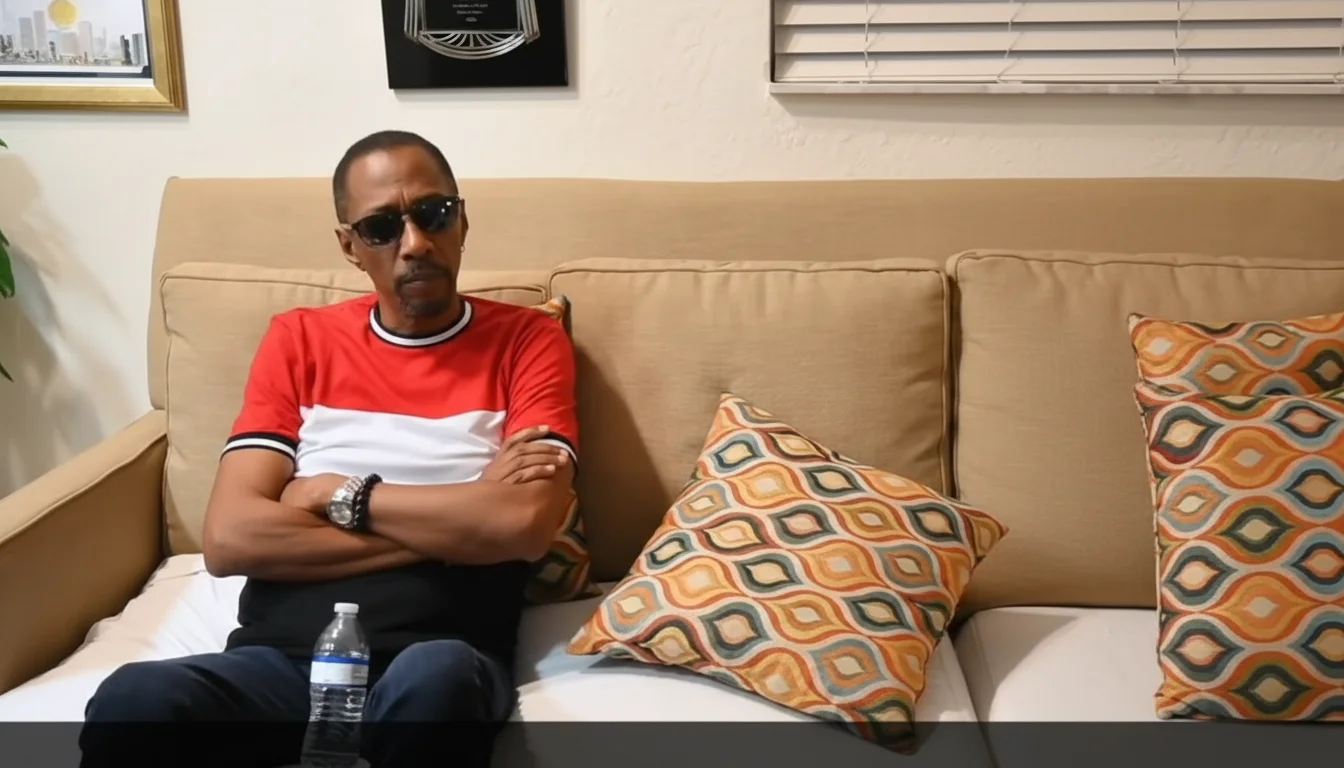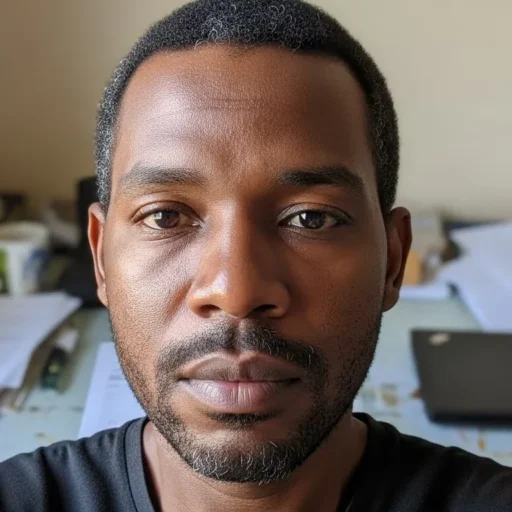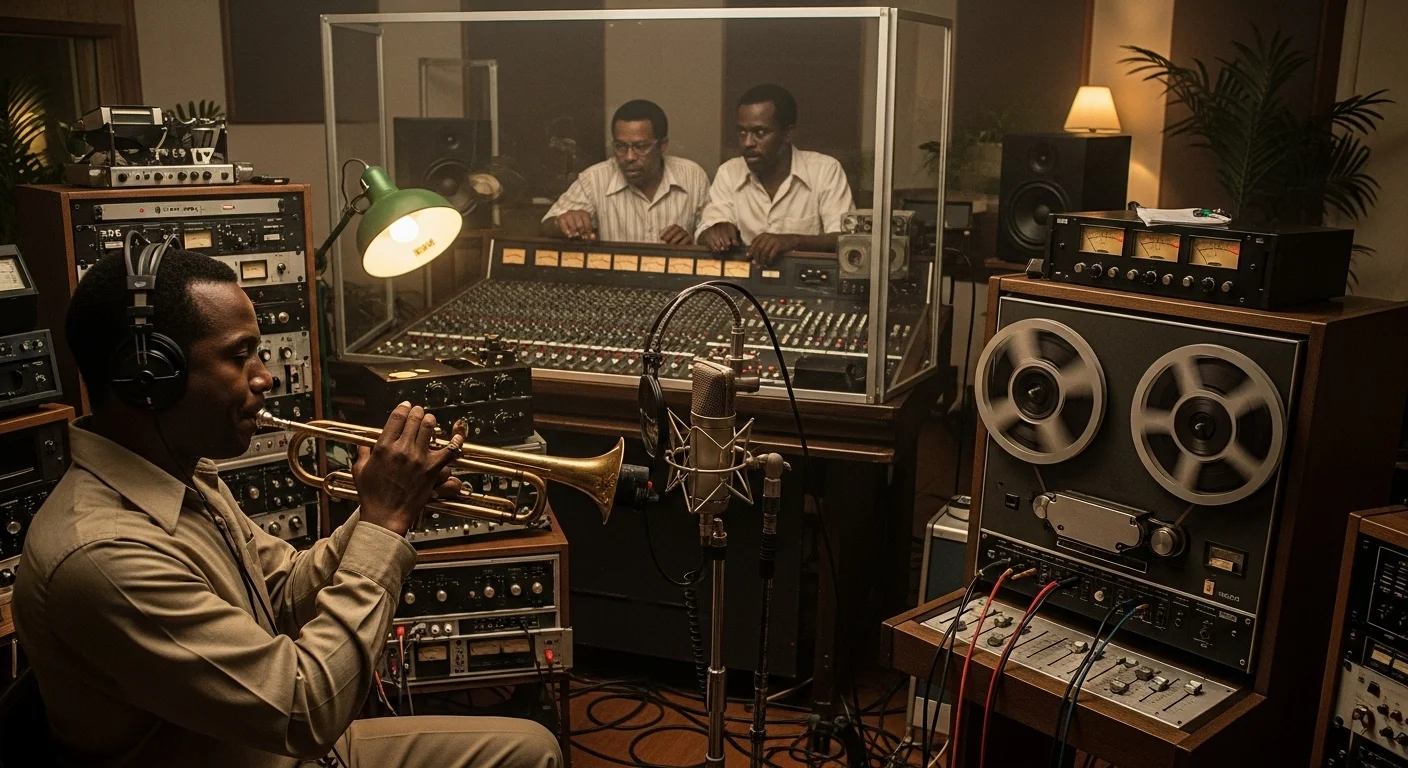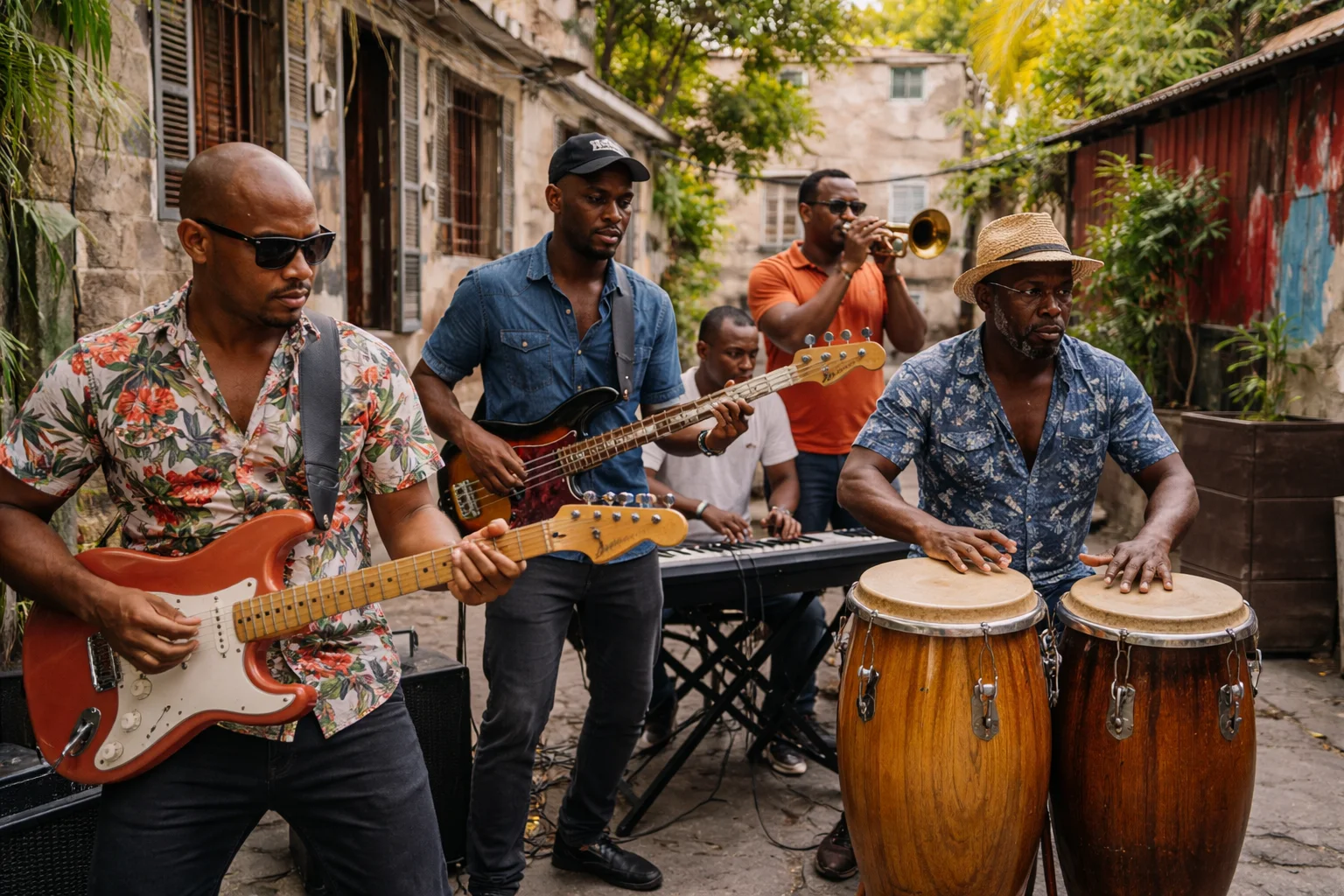In the pantheon of Caribbean music, few figures command the technical respect and historical weight of Dadou Pasquet. As a guitarist, composer, and bandleader, Pasquet is not merely a performer but a pivotal architect of the modern Haitian sound. His career, spanning over five decades, bridges the gap between the traditional rhythms of Konpa Dirèk and the complex harmonies of American jazz and funk. From his early tenure with the legendary Tabou Combo to the founding of the Magnum Band, Pasquet has consistently pushed the boundaries of what Haitian dance music can achieve.
Pasquet’s influence extends beyond simple entertainment; he is often cited by musicologists and fellow musicians as a standard-bearer for instrumental precision. His approach to arrangement and rhythm transformed the genre, introducing a level of musicality that allowed Haitian music to compete on global stages, including the Olympic Games. Understanding his contribution requires looking past the hit songs and examining the theoretical foundations he laid for the genre known as “Funky Konpa.”
This exploration delves into the history of Magnum Band, the specific rhythmic theories Pasquet employs to maintain musical discipline, and his philosophy regarding the cultural unity of the French Antilles. By analyzing his recent public discourses and career milestones, we gain insight into how a specific blend of discipline and innovation created a legacy that has outlasted fleeting musical trends.
The Transition from Tabou Combo to Magnum Band
Dadou Pasquet’s musical narrative began in the vibrant diaspora communities of New York City in the late 1960s. His initial work with the band Tropical served as a training ground, but it was his tenure with Tabou Combo between 1970 and 1976 that introduced him to a mass audience. During this “golden era” of Haitian music, Tabou Combo was establishing itself as a dominant force, blending local rhythms with the energy of New York City. Pasquet recorded four seminal albums with the group, contributing guitar work that helped define the era’s sound.
However, artistic growth often requires divergence. By 1976, at the age of 21, Pasquet found the creative confines of an established supergroup too restrictive for his evolving vision. The decision to leave Tabou Combo was not merely a career move but a declaration of artistic independence. He sought to create a sound that was distinct from the standard Konpa of the time—a sound that would eventually manifest as the Magnum Band. This departure marked a significant risk, trading the security of a famous ensemble for the uncertainty of a new project.
The formation of Magnum Band was driven by a desire to modernize the genre. Pasquet observed that the international market was evolving, with audiences becoming accustomed to the sophisticated production values of American R&B and Funk. His goal was to engineer a Haitian band that could sit comfortably on a playlist alongside Earth, Wind & Fire or George Benson, without losing the essential Haitian identity. This ambition required a new approach to arrangement, one that prioritized harmonic complexity and rhythmic tightness over simple dance grooves.
Defining the “Funky Konpa” Aesthetic
The term “Funky Konpa” is frequently used in Haitian music circles, but it is often applied loosely to any song with a groove. For Pasquet, however, it is a precise musical methodology. The foundation of this style remains Konpa Dirèk, the dance music popularized by Nemours Jean-Baptiste in the 1950s. Pasquet insists that before any fusion can occur, the Konpa element must be flawless. He describes Konpa as a genre of accuracy, where the groove is direct and free of rhythmic defects.
Upon this traditional foundation, Pasquet layers elements of North American Funk, Blues, and Jazz. This fusion is audible in the guitar work, which often utilizes jazz chords and syncopated strumming patterns that differ from the straighter, more percussive style of traditional Konpa guitarists. The bass lines in Magnum Band songs often employ slap-bass techniques characteristic of 1970s funk, creating a dynamic interplay between the rhythm section and the melody.
This hybridization was strategic. By incorporating these familiar international elements, Magnum Band created an entry point for non-Haitian listeners. The music retained the hypnotic pulse of the Caribbean but dressed it in sonic textures that were recognizable to global audiences. This cross-cultural synthesis is what allowed the band to tour extensively outside the typical diaspora circuit, appealing to jazz festival audiences and world music enthusiasts alike.
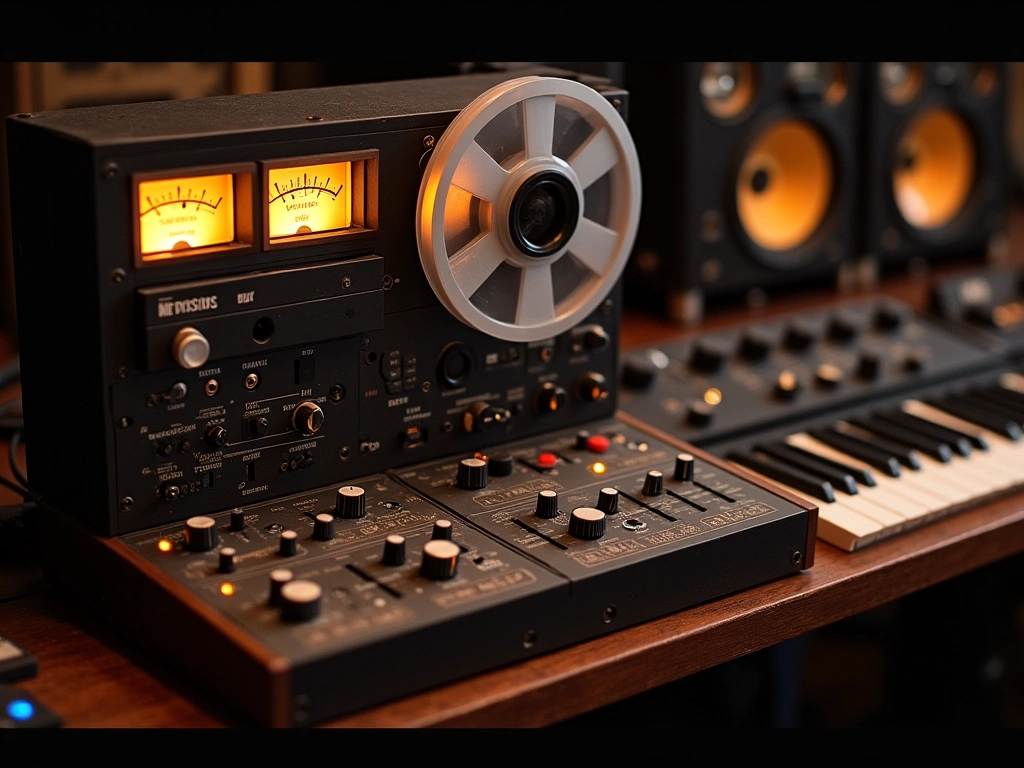
The Clock Analogy: A Theory of Rhythmic Precision
One of Pasquet’s most enduring contributions to Haitian music theory is his conceptualization of the rhythm section. In a genre driven by dance, the relationship between the instruments is paramount. Pasquet utilizes a “Clock Analogy” to explain how a band must function to maintain the relentless groove required for Konpa. In this model, every instrument corresponds to a specific unit of time, ensuring that the music moves forward with mechanical precision.
According to this theory, the drums represent the hour hand. They provide the broad, stabilizing structure of the song, marking the major beats and setting the tempo. The Tanbou (hand drum) acts as the minute hand. It provides the internal subdivision and the distinct Caribbean flavor, filling in the space between the heavy downbeats of the kick drum. Finally, the percussion instruments—specifically the gong or cowbell—act as the second hand. They provide the rapid, constant ticking that drives the energy of the track.
This analogy highlights the importance of hierarchy and discipline within the band. If the “second hand” drags or rushes, the entire sense of time collapses. Pasquet’s leadership style is defined by this demand for accuracy. This theoretical framework explains why Magnum Band’s live performances are renowned for their tightness. The musicians are not just playing together; they are operating as interlocking gears in a single timekeeping mechanism.
Visuals vs. Audio: The “Music for the Eyes” Critique
In recent years, Pasquet has become a vocal critic of the shifting priorities within the music industry. He observes a phenomenon he terms “listening with the eyes,” where the visual presentation of an artist—music videos, social media presence, and fashion—takes precedence over the auditory experience. He argues that this shift has led to a decline in musical substance, as producers focus on what will look good on a screen rather than what will resonate in the ear.
This critique touches on the issue of longevity. Pasquet points out that Magnum Band classics like Experience and Jehovah remain staples of radio and parties nearly half a century after their release. These songs were crafted with a focus on melody, harmony, and lyrical depth. In contrast, he notes that many modern viral hits explode in popularity for a few months and then vanish completely. He attributes this disposability to the lack of musical foundation; when the visual novelty wears off, there is no substantial composition left to sustain the listener’s interest.
The distinction is between creating “content” and creating art. For Pasquet, music is an auditory medium that requires active listening. When audiences prioritize the visual spectacle, they may miss the nuances of the arrangement or the skill of the instrumentalists. His commentary serves as a call to return to high production standards where the quality of the recording itself is the primary selling point.
Global Validation at the 1996 Atlanta Olympics
A defining moment in the history of Magnum Band, and for Haitian music generally, occurred during the 1996 Summer Olympics in Atlanta. While many Caribbean bands struggle to break out of the “ethnic” or “community” event circuit, Magnum Band was selected to perform a series of 11 shows during the games. This was not a minor side stage; it was a significant cultural showcase that placed them in the same orbit as global superstars like Peter Gabriel.
Pasquet emphasizes that this opportunity was secured through professional reputation rather than nepotism. In an industry often plagued by informal networks and “friend connections,” the selection of Magnum Band was a validation of their professional caliber. The organizers required a band that could deliver world-class sound, punctuality, and stage presence. Magnum Band’s track record, bolstered by strong relationships with major broadcasters like WLRN in Miami, made them the logical choice.
These performances demonstrated that Konpa could function as a form of cultural diplomacy. By performing for an international audience of athletes and tourists, the band showcased a sophisticated, joyous side of Haitian culture that often goes unreported in mainstream media. It proved that when executed with high standards, Haitian music transcends language barriers and connects on a purely rhythmic and emotional level.
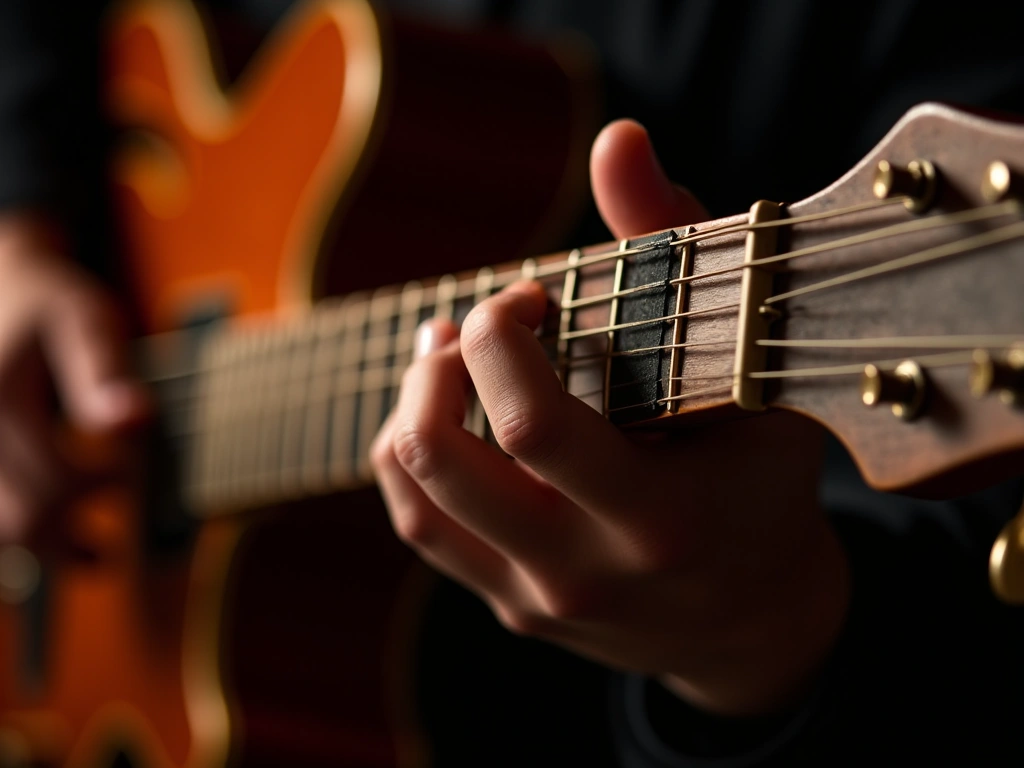
The “Amagwa” Philosophy and Regional Unity
Beyond his technical contributions, Dadou Pasquet is a proponent of regional unity within the Caribbean. He recognized early in his career that the musical and cultural divisions between Haiti and the French Antilles (Martinique, Guadeloupe, and French Guiana) were largely artificial. To articulate this connection, he coined the term “Amagwa.” This portmanteau combines the syllables of the three territories: A (Ayiti), Ma (Martinique), and Gwa (Guadeloupe).
The concept of Amagwa is more than just a slogan; it reflects the cross-pollination of musical styles. During the 1980s, the rise of Zouk music in the French Antilles was heavily influenced by Haitian Konpa, and conversely, Magnum Band incorporated the polished production techniques of Zouk into their repertoire. Pasquet views the populations of these islands as a single cultural block, separated by water but united by history, language (Creole), and rhythm.
When Pasquet invokes “Amagwa” during concerts, it serves as a rallying cry for solidarity. It reminds the audience that despite political boundaries and different colonial histories, the people of the Francophone Caribbean share a common identity. This philosophy has endeared him to audiences across the French West Indies, where he is revered not just as a Haitian artist, but as a Caribbean icon.
FAQ: Understanding Dadou Pasquet and Magnum Band
What is the primary difference between Tabou Combo and Magnum Band?
While both bands are pillars of Haitian music, Tabou Combo is known for its big-band energy and broad incorporation of various dance styles popular in the 1970s. Magnum Band, founded by Pasquet after leaving Tabou Combo, focuses more heavily on the fusion of Konpa with American Funk and Jazz. Magnum Band is often noted for its intricate guitar work and specific rhythmic precision, reflecting Pasquet’s “Funky Konpa” vision.
What does the “Clock Analogy” refer to in Pasquet’s music theory?
The Clock Analogy is a teaching tool Pasquet uses to explain the role of different instruments in a rhythm section. He assigns the drums the role of the “hour hand” (structure), the Tanbou or congas the role of the “minute hand” (subdivision), and the cowbell or gong the role of the “second hand” (constant motion). This ensures that every musician understands their specific responsibility in maintaining the tempo and groove.
Why is Dadou Pasquet called the “architect” of Funky Konpa?
Pasquet is considered the architect of this style because he deliberately introduced complex jazz harmonies and funk rhythms into the traditional Konpa framework. Rather than simply playing dance music, he applied music theory to the arrangements, using slap bass and jazz guitar chords to create a sophisticated sound that appealed to international audiences while keeping the Haitian rhythmic core intact.
What is the meaning of “Amagwa”?
“Amagwa” is a term coined by Dadou Pasquet to represent the cultural and musical unity of the Francophone Caribbean. It is an acronym derived from Ayiti (Haiti), Martinique, and Gwadeloupe. The term symbolizes the shared heritage and deep connection between these nations, particularly in their music and language.
Did Magnum Band perform at the Olympics?
Yes, Magnum Band performed at the 1996 Summer Olympics in Atlanta. They were selected to play 11 separate shows during the event. This engagement is considered a major milestone in the history of Haitian music, as it presented the genre on a prestigious global platform alongside major international artists.
What instrument does Dadou Pasquet play?
Dadou Pasquet is primarily a guitarist and vocalist. He is renowned for his technical proficiency on the guitar, blending rhythmic comping with melodic soloing. His guitar style is a defining element of the Magnum Band sound, influencing generations of Haitian guitarists who followed him.
